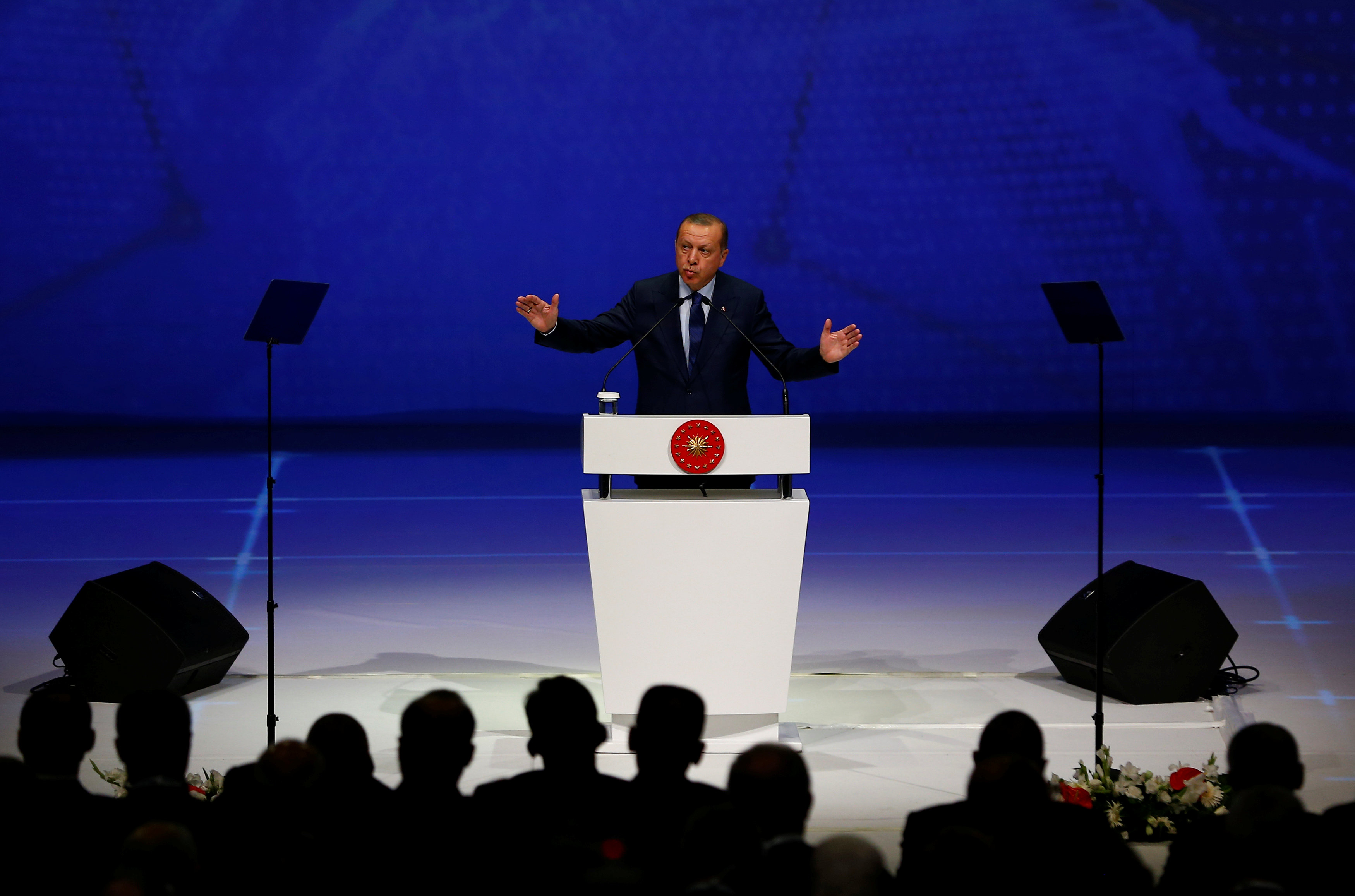
By Steve Holland
UNITED NATIONS (Reuters) – U.S. President Donald Trump said on Wednesday he wanted a two-state solution to resolve the Israeli-Palestinian conflict, the clearest expression yet of his administration’s support for such an outcome.
The Trump administration has in the past said it would support a two-state solution if both sides agreed to it.
Trump, in a meeting with Israeli Prime Minister Benjamin Netanyahu at the United Nations, also said he wanted to unveil a peace plan in the next two to three months.
“I like a two-state solution. That’s what I think works best … That’s my feeling,” said Trump, who is attending the annual U.N. gathering of world leaders.
Netanyahu has said that any future Palestinian state must be demilitarized and must recognize Israel as the state of the Jewish people – conditions that Palestinians say show he is not sincere about peacemaking.
The United States’ Arab allies are strong proponents of a two state solution.
“I really believe something will happen. They say it’s the toughest of all deals,” Trump said.
He added that Israel will have to do something good for the other side without elaborating.
Doubts have mounted over whether Trump’s administration can secure what he has called the “ultimate deal” since December, when the U.S. President recognized Jerusalem as Israel’s capital and then moved the U.S. Embassy there.
“It is a dream of mine to get that done prior to the end of my first term,” Trump said of an agreement on the conflict.
“I don’t want to do it in my second term. We’ll do other things in my second term,” he said. “I think a lot of progress has been made. I think that Israel wants to do something and I think that the Palestinians actually want to do something.”
Jerusalem is one of the major issues in the Israeli-Palestinian conflict. Both sides claim it as a capital. Trump’s move outraged the Palestinians, who have since boycotted Washington’s peace efforts, led by Trump’s son-in-law and adviser, Jared Kushner.
The Palestinians want to establish a state in the West Bank and the Gaza Strip and East Jerusalem. Israel captured those territories in the 1967 Middle East war and annexed East Jerusalem in a move not recognized internationally. It regards all of the city as its eternal and indivisible capital.
Asked what Israel might have to give up in return for the embassy’s move to Jerusalem, Trump replied: What will Israel have to give up after U.S. embassy move to Jerusalem? “I took probably the biggest chip off the table.
“And so obviously we have to make a fair deal, we have to do something. Deals have to be good for both parties … Israel got the first chip and it’s a big one.”
(Reporting by Steve Holland and Arshad Mohammed; Writing by Yara Bayoumy; editing by Grant McCool)












